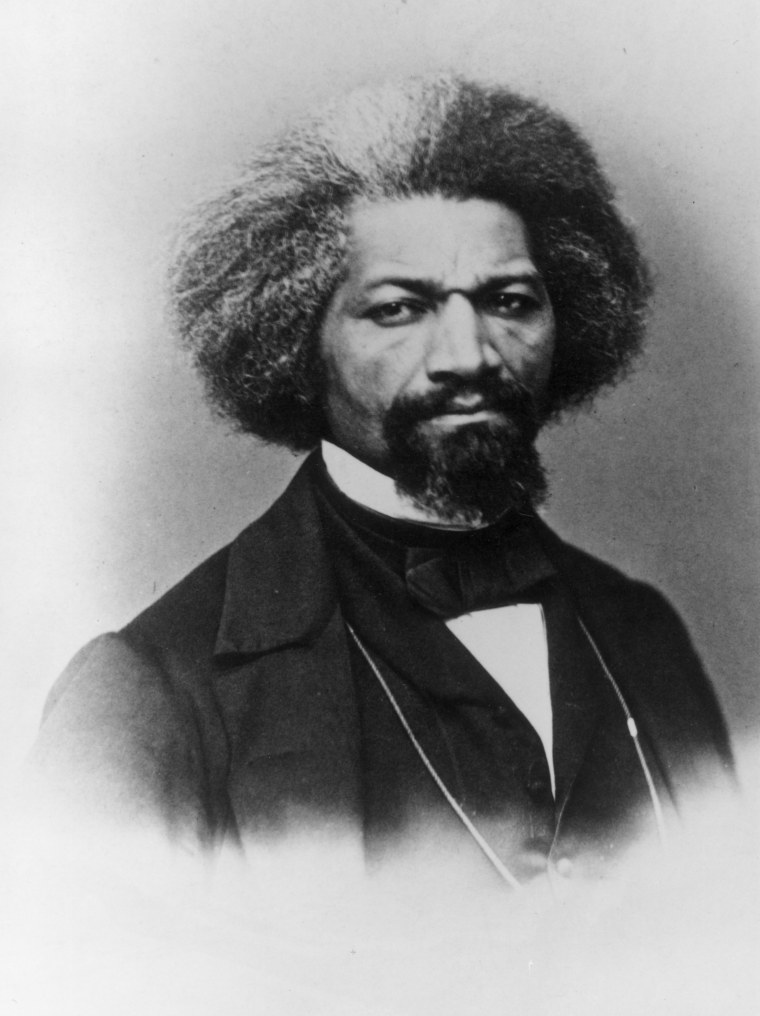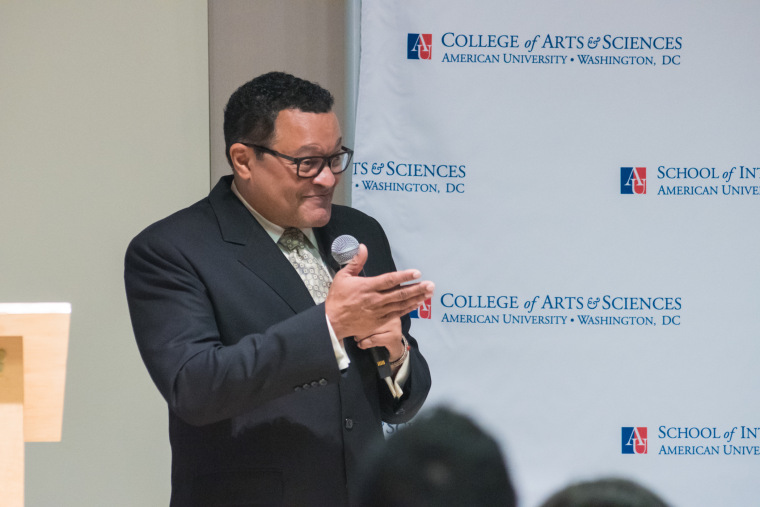This year marks the 200th birth anniversary of Frederick Douglass, the American abolitionist, statesman, orator and ambassador born enslaved on Maryland’s Eastern Shore.

Commemorative events are scheduled to take place all year, and in February, members of the Congress-created Frederick Douglass Bicentennial Commission were sworn in during a Capitol Hill ceremony.
One member of the commission is Kenneth B. Morris Jr. of California. He and his mother, Nettie Washington Douglass, are descendants of Douglass as well as of Booker T. Washington, the renowned educator and founder of Tuskegee Institute.
NBCBLK spoke with them recently about efforts to share the Douglass legacy with a new generation in this bicentennial year.
NBC BLK: Please tell us how you are related to Frederick Douglass. He married twice in his lifetime, correct?
Ken Morris: Yes. We’re descended from Anna Murray Douglass [a free Black woman], his first wife of 44 years. He did not have children with his second wife. I am the great-great-great-grandson of Frederick Douglass and the great-great-grandson of Booker T. Washington.
Nettie Washington Douglass: I am the great-great-granddaughter of Frederick Douglass. He had five children and all but one survived into adulthood. My mother, Nettie Hancock Washington is the granddaughter of Booker T. Washington and she married my father, Dr. Frederick Douglass III, the great grandson of Frederick Douglass. They bumped into each other on campus at Tuskegee and it was love at first sight; they married three months later. There are also descendants from his older daughter, Rosetta. Between the Douglass legacy and that of Booker T. Washington, I sometimes pinch myself. It’s a great honor and privilege.
You both co-founded the Frederick Douglass Family Initiatives (FDFI) in 2007 with Robert J. Benz. Tell me about it.
Ken Morris: FDFI is an abolitionist organization that combines lessons from the legacies of Frederick Douglass and Booker T. Washington: Abolition through education.
We launched this to confront modern-day slavery and human trafficking. Millions are still enslaved in every country of the world, including the United States. Who better than the model of the great abolitionist who fought for the freedom of African Americans?
Nettie Washington Douglass: We want to educate the public, especially young people and students. We want to provide information that may prevent young people themselves from becoming victims and help create global citizens.
What are some of your other initiatives?
Ken Morris: We recently formed a collaboration with American University in Washington, D.C., and its Antiracist Research and Policy Center — issues include systemic racism to mass incarceration.

We also have an initiative called “One Million Abolitionists.” We will give away one million copies of “The Narrative of the Life of Frederick Douglass: An American Slave” to young people. We want to inspire them to create service projects in their community using Douglass’ example of courage.
Does your family have stories that were passed down about Frederick Douglass?
Nettie Douglass: I have memories of spending summers at Highland Beach resort [in Maryland] which was founded by the Douglass family in response to discrimination. He spent time there when he wasn’t at his Anacostia home in Washington, D.C. I loved going there; I felt close to him.
Also, my late grandmother met Douglass when she was about 8 or 9 years old. The family were the first Black morticians in Atlanta and they went to pick him up in a horse and buggy when he came for a speech. She was so taken by his “big white hair.” Years later, she talked about it, apparently it left quite an impression.
This interview has been edited and condensed for clarity.
Follow NBCBLK on Facebook, Twitter and Instagram.
CORRECTION (March 8, 2018, 8:41 p.m. ET): An earlier version of this article misstated the number of Frederick Douglass’ children who lived to adulthood. It was four, not two.
